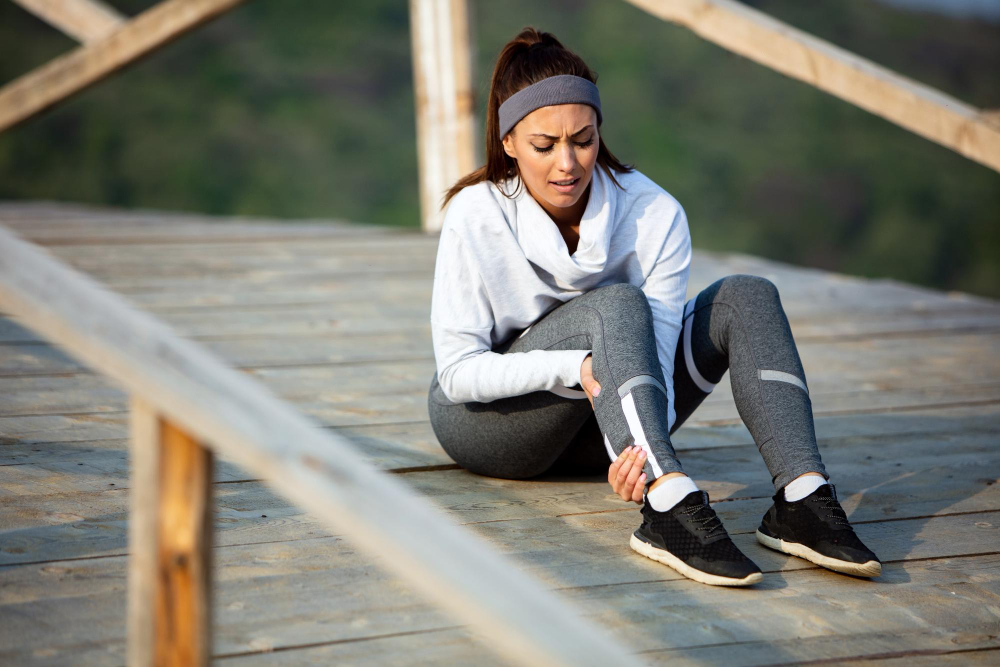How to Safely Return to Sport After an Ankle Sprain

An ankle sprain can take you out of the game, but it doesn’t have to sideline you for long. With the proper care, patience, and guidance, you can rebuild strength, regain confidence, and return to your favorite activities with reduced risk of re-injury. But where should you start?
This blog will guide you step by step on how to safely return to sport after an ankle sprain. Whether you're an athlete recovering from a first-time injury or someone who struggles with recurring ankle issues, this guide is for you. Plus, we’ll explain how a physical therapist in Oviedo, FL can be your greatest teammate in this recovery process.
Understanding Ankle Sprains
What Happens During an Ankle Sprain?
An ankle sprain occurs when the ligaments supporting the ankle are stretched or torn. While these ligaments are designed to stabilize the joint, a sudden twist, roll, or awkward landing can lead to injury.
Common symptoms of an ankle sprain include:
- Swelling and bruising
- Pain, especially when bearing weight
- Reduced range of motion and stiffness
- Tenderness around the joint
Severity Levels of Ankle Sprains
Ankle sprains are categorized into three grades based on severity:
- Grade 1 (Mild): The ligament is stretched but not torn. There's mild pain and swelling, but you're still able to walk.
- Grade 2 (Moderate): A partial tear causes significant swelling, bruising, and pain, with some difficulty bearing weight.
- Grade 3 (Severe): This involves a complete ligament tear, severe swelling, and an inability to bear weight.
The severity of your sprain will dictate your recovery timeline and steps.
The Keys to Recovery After an Ankle Sprain
Recovering from an ankle sprain requires more than just rest. Here’s a phased approach to recovery that gets you back in the game while minimizing the risk of re-injury.
Phase 1: Rest, Reduce Swelling, and Manage Pain
The first phase of recovery focuses on reducing inflammation and protecting the injured area.
- RICE Protocol
For the first 48-72 hours, follow the RICE method:
- Rest: Avoid weight-bearing activities. Use crutches if needed.
- Ice: Apply an ice pack for 15-20 minutes every 2 hours.
- Compression: Wear an elastic bandage to minimize swelling.
- Elevation: Keep the ankle elevated above heart level whenever possible.
- Use Supportive Tools
Depending on your injury’s severity, a brace or wrap may provide additional support during this phase. Follow your healthcare provider's guidance.
- Pain Management
Over-the-counter anti-inflammatory medication may be recommended for managing pain and swelling.
Phase 2: Restore Motion and Strength
Once the pain subsides, it’s time to regain movement and rebuild strength in the ankle joint under professional guidance.
- Gentle Range-of-Motion Exercises
These help loosen the joint and restore flexibility. Examples include:
- Ankle circles
- Towel stretches
- Writing the alphabet with your foot
- Strengthening Exercises
Focus on rebuilding stability in the surrounding muscles:
- Seated heel raises (progressing to standing)
- Resistance band exercises for dorsiflexion, plantarflexion, and lateral stability
- Balance Training
Proprioception (your sense of joint position) is often disrupted after an ankle sprain. Balance exercises, like standing on one leg, are crucial for restoring this function.
Working with a physical therapist in Oviedo, FL during this phase ensures you perform exercises correctly and safely.
Phase 3: Gradual Return to Activity
Once you have regained strength and mobility, you can start reintroducing sport-specific activities.
- Controlled Movements
Practice drills or movements at half-speed to test your ankle’s tolerance. Pay attention to any discomfort or instability.
- Progressive Loading
Gradually increase intensity over time. Start with light jogging, ladder drills, or modified versions of your sport.
- Wear Proper Gear
Braces or ankle supports can provide additional stability during this phase.
Phase 4: Prevent Re-injury
Many athletes return too quickly, only to sprain their ankle again due to inadequate recovery. Prevention is critical for long-term success.
- Continue Balance and Strength Training
Even after returning to your sport, regular ankle-strengthening and balance exercises should be part of your routine.
- Warm Up Properly
Always include dynamic stretches before physical activity to prepare your body for movement.
- Listen to Your Body
Avoid pushing through lingering pain or discomfort, as this may lead to setbacks.
Can a Physical Therapist Help with Recovery?
Absolutely! A physical therapist in Oviedo, FL can design a personalized recovery program tailored to your specific needs and sport. Here’s how they can help:
- Expert Assessment
A physical therapist will assess the severity of your injury and identify any underlying weaknesses or imbalances that may increase the risk of re-injury.
- Targeted Treatment Plan
From therapeutic exercises to manual therapy, they create a plan to restore stability, strength, and mobility.
- Sport-Specific Training
Physical therapists specialize in preparing athletes for their specific activities, ensuring a safe and confident return to sport.
- Education and Prevention
Learn proper techniques, footwear recommendations, and strategies to prevent future ankle injuries.
Your Road to Recovery Starts Here
An ankle sprain doesn’t have to keep you off the field for long. With the right care, a thoughtful recovery plan, and professional guidance, you’ll be back to doing what you love in no time.
If you're recovering from an ankle sprain and need expert help, contact B Physical Therapy in Oviedo, FL, today. Our team of experienced physical therapists will work with you every step of the way to get you back in the game safely and confidently.